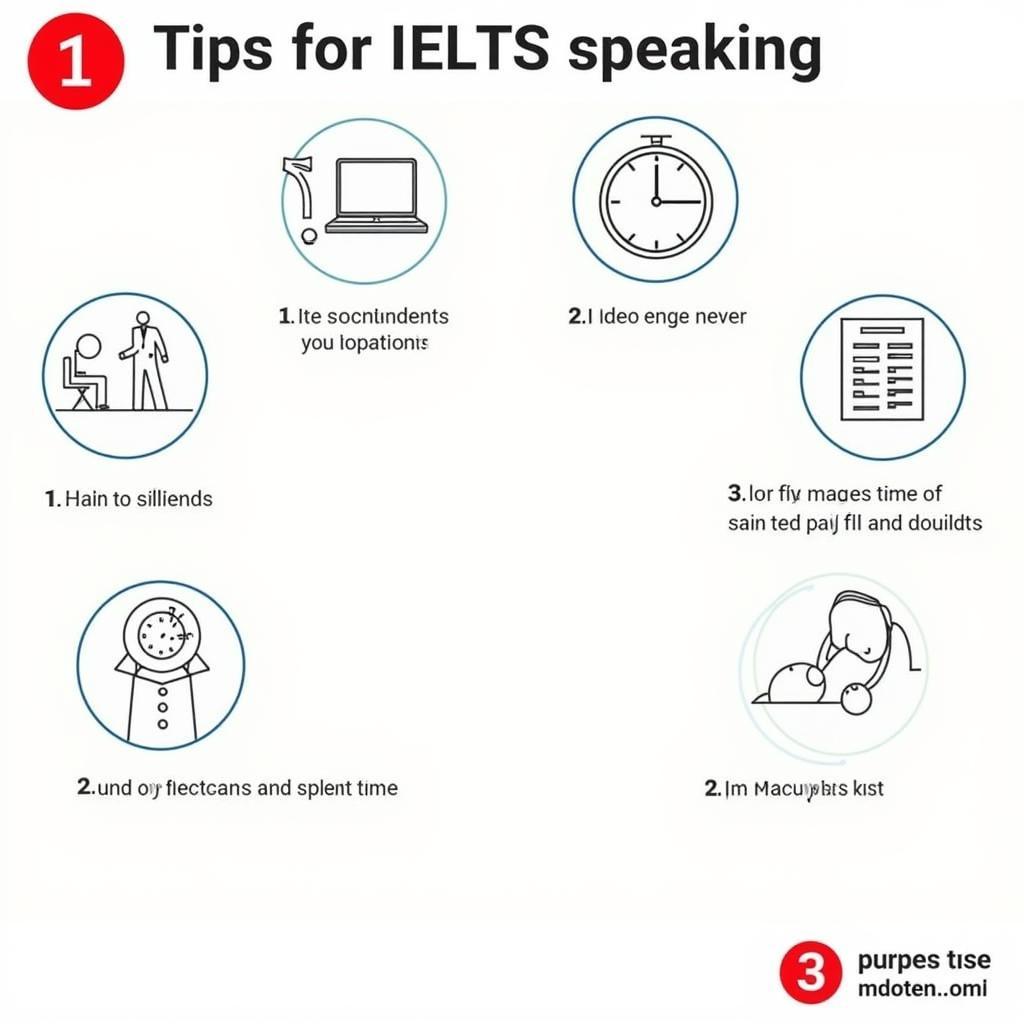The sky, a boundless canvas stretching above us, often takes center stage in the IELTS Speaking test. Whether you’re asked to describe a beautiful sky you’ve witnessed or discuss the importance of studying celestial bodies, understanding how to articulate your thoughts about this vast expanse is crucial for achieving a high score. This article will equip you with the vocabulary and strategies needed to confidently tackle any “sky” related topic in the IELTS Speaking exam.
Decoding the IELTS Speaking Test: Why “The Sky” Matters
The IELTS Speaking test assesses your ability to communicate effectively in English. The topics, while seemingly simple, are designed to evaluate a range of skills: fluency, vocabulary, grammar, pronunciation, and coherence. “The Sky,” despite its broad nature, allows examiners to delve into these areas. You might be asked about:
- Personal experiences: Describing a memorable sunset or a time you felt a sense of awe looking at the stars.
- Abstract concepts: Discussing the impact of light pollution or your thoughts on space exploration.
- Hypothetical situations: Imagining life on another planet or the consequences of climate change on the appearance of the sky.
Reaching for a High Band Score: Key Vocabulary for “The Sky”
To impress the examiner, it’s essential to go beyond basic vocabulary. Here’s a breakdown of terms categorized by different aspects of the sky:
General Appearance:
- Azure: A bright blue color (e.g., The sky was a vibrant azure, a stark contrast to the gray buildings below).
- Cloudless: Free from clouds (e.g., It was a rare cloudless day, perfect for a picnic).
- Overcast: Covered with clouds (e.g., The overcast sky made the city feel gloomy).
- Vastness: Immense size (e.g., Gazing at the vastness of the night sky always fills me with a sense of wonder).
Weather Phenomena:
- Sunrise/Sunset: The time when the sun appears/disappears below the horizon (e.g., I woke up early to witness the breathtaking sunrise over the mountains).
- Twilight: The soft glowing light from the sky when the sun is below the horizon (e.g., We strolled along the beach, enjoying the tranquility of twilight).
- Meteor shower: A celestial event where numerous meteors streak across the sky (e.g., Watching a meteor shower with my family is a cherished childhood memory).
- Northern Lights (Aurora Borealis): A natural light display in the sky, predominantly seen in high-latitude regions (e.g., Seeing the Northern Lights dance across the sky is a bucket list item for me).
Celestial Objects:
- Constellations: Groups of stars forming recognizable patterns (e.g., My grandfather taught me how to identify different constellations).
- Milky Way: The galaxy that contains our solar system, appearing as a faint band of light across the sky (e.g., On clear nights, we can sometimes see the Milky Way stretching across the sky).
- Planets: Celestial bodies orbiting a star (e.g., Through my telescope, I could see the rings of Saturn).
- Astronomy: The study of celestial objects and phenomena (e.g., I’ve always been fascinated by astronomy and the mysteries of the universe).
Mastering the Art of Describing a Beautiful Sky
One common IELTS Speaking prompt is to describe a beautiful sky you’ve seen. Here’s a sample answer showcasing effective vocabulary and structure:
- Examiner: “Can you describe a time when you saw a particularly beautiful sky?”
- Candidate: “One sky that’s etched in my memory was during a camping trip to the mountains. As the sun began its descent, the sky transformed into a canvas of fiery hues. Vivid oranges and deep purples swirled together, their reflections dancing on the surface of a nearby lake. It was as if an artist had splashed the sky with vibrant colors. What made it even more spectacular was the silhouette of the mountain peaks against this breathtaking backdrop. It was a truly awe-inspiring sight that I’ll never forget.”
Key Takeaways from this answer:
- Sensory details: Use words that evoke sight (fiery hues, vibrant colors), and sound (silence of the mountains).
- Figurative language: Employ metaphors (canvas of fiery hues, artist had splashed) to create vivid imagery.
- Emotional connection: Briefly mention how the experience made you feel (awe-inspiring, unforgettable).
Talking About the Importance of Studying the Sky
Beyond personal experiences, you might be asked to discuss the significance of studying the sky. Here’s how you can approach such a question:
- Examiner: “Why do you think it’s important for people to study the sky?”
- Candidate: “Well, I believe studying the sky provides us with a deeper understanding of our place in the universe. Astronomy helps us comprehend the vastness of space, the lifecycle of stars, and the formation of galaxies. This knowledge fosters scientific curiosity and encourages us to explore the unknown. Moreover, studying the sky has practical implications. By observing celestial patterns, ancient civilizations developed calendars and navigational techniques. Today, satellite technology, crucial for communication and weather forecasting, stems from our understanding of celestial mechanics. Therefore, studying the sky is not only intellectually enriching but also essential for technological advancement.”
Key Points in this response:
- Structure: Provide a clear opinion (deeper understanding of our place in the universe) and support it with reasons.
- Examples: Use concrete examples to illustrate your points (ancient civilizations, satellite technology).
- Connecting words: Utilize transition words (moreover, therefore) to ensure a smooth flow of ideas.
Don’t Fear the Unknown: Handling Hypothetical “Sky” Questions
The IELTS Speaking test often includes hypothetical scenarios. Here’s how to tackle a question related to “the sky”:
- Examiner: “What do you think the sky on other planets might look like?”
- Candidate: “That’s a fascinating question! While we can’t be certain without direct observation, I imagine the sky on other planets could be strikingly different from ours. For instance, a planet orbiting a red dwarf star might have a dimmer, reddish sky. Planets with dense atmospheres might have skies perpetually shrouded in clouds, obscuring any view of space. On a gas giant like Jupiter, I imagine the sky would be a swirling mass of colorful gases, a far cry from our familiar blue. The possibilities are truly endless!”
Key Strategies Used:
- Acknowledge the hypothetical: Directly address the speculative nature of the question (“That’s a fascinating question! While we can’t be certain…”).
- Use your imagination: Don’t be afraid to speculate, but back up your ideas with logic (red dwarf star, dense atmospheres).
- Vocabulary: Showcase your range of vocabulary related to space (red dwarf, dense atmospheres, gas giant).
 Aurora Borealis in the Night Sky
Aurora Borealis in the Night Sky
Preparing for Success: Practice Makes Perfect
To ace the IELTS Speaking test, consistent practice is key. Here are some tips:
- Expand your vocabulary: Regularly learn new words and phrases related to “the sky,” paying attention to pronunciation.
- Record yourself: Answer practice questions aloud and record yourself to identify areas for improvement in fluency and pronunciation.
- Seek feedback: Ask a teacher or a native speaker to evaluate your responses and provide constructive criticism.
- Stay informed: Keep abreast of current events related to space exploration and astronomy; this might provide you with relevant examples during the test.
Conclusion
Mastering the “sky” theme in the IELTS Speaking test involves a combination of vocabulary, structure, and the ability to think creatively. By familiarizing yourself with a wide range of terms, practicing different question types, and approaching the test with confidence, you can elevate your performance and achieve your desired band score.




